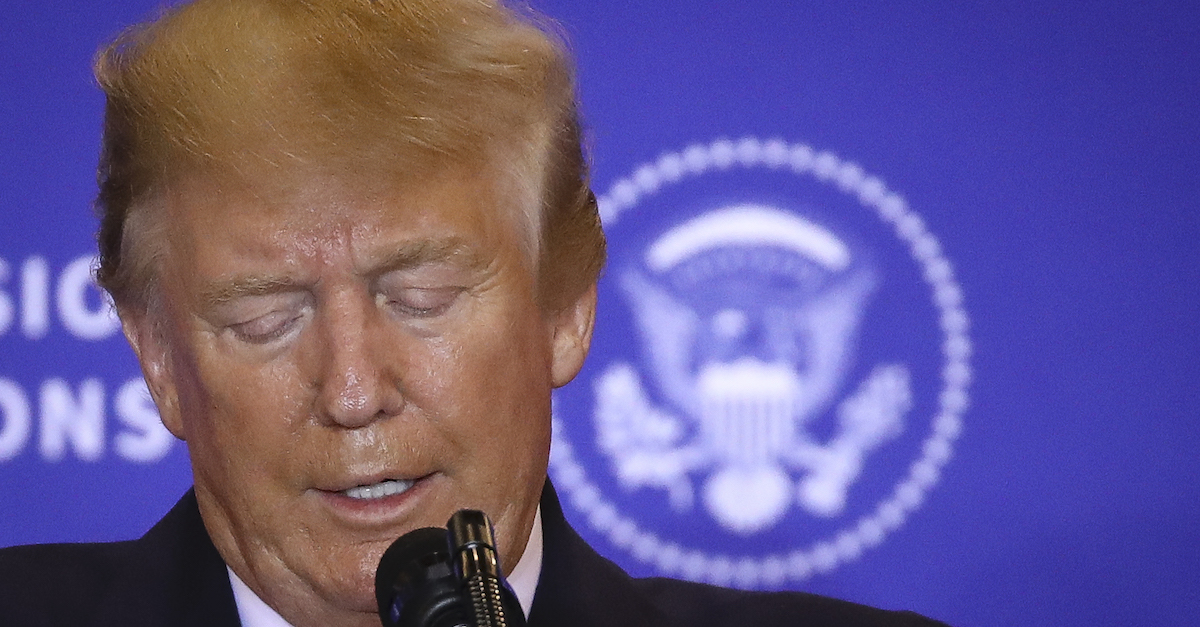
The Trump administration assassinated top Iranian general Qassem Soleimani late last week, leading some to conclude that it did so without valid international legal authority. After the dust settled, stale military authorizations specific to prior conflicts and Article II were cited as domestic legal authorities justifying taking this action without congressional consent. And according to one Republican U.S. Senator, senior Trump administration officials on Wednesday refused to answer a highly relevant hypothetical question.
The question? Whether the administration believes it has the authority to assassinate Iran’s Supreme Leader Sayyid Ali Hosseini Khamenei without a new authorization for use of military force.
Sen. Mike Lee (R-Utah) blasted President Donald Trump, Secretary of State Mike Pompeo and General Mark Milley on Wednesday, calling that briefing “insulting” and “demeaning.” Lee said the ineptitude, apparent duplicity and outright arrogance of the briefing had sent him firmly into the arms of those arguing that Trump’s war-making powers must be constrained by Congress.
During a Thursday morning interview with National Public Radio’s Rachel Martin, Lee revealed shocking new details about the administration’s after the fact accounting of what led up to the Soleimani killing. Playing devil’s advocate, Lee said that for the purposes of making a broader argument and eliciting greater understanding, he would assume the general’s death had some legal basis.
“What comes next?” Lee asked out loud. “Is there another strike coming against Iran? If so, at what point do they need to come to us seeking an authorization for the use of military force? The fact that they were unable or unwilling to identify any point at which that would be necessary yesterday was deeply distressing to me.”
Martin followed up: “What kind of hypotheticals were you putting to them in hopes of understanding when the administration sees a need for congressional authority?”
To which Lee replied:
As I recall, one of my colleagues asked a hypothetical involving the supreme leader of Iran—if at that point, the United States government decided that it wanted to undertake a strike against him personally; recognizing that he could be a threat to the United States—would that require authorization for the use of military force? The fact that there was nothing but a refusal to answer that question was perhaps the most deeply upsetting thing to me in that meeting. I think it was unprofessional, inappropriate, and reflective of a certain cavalier attitude toward the Constitution to refuse to make a commitment on that front.
Legal experts were horrified.
“It would be hard to understand assassinating a foreign head of state as anything other than an act of war,” Cornell Law Professor Josh Chafetz told the Washington Post’s Greg Sargent. “It’s appalling that executive-branch officials would imply, even in responding to a hypothetical question, that they do not need congressional authorization to do it.”
NYU Law Professor Ryan Goodman was a bit more blunt about it:
University of Texas Law Professor Steve Vladeck—who has previously suggested the assassination of Soleimani was legal and permissible—expressed some concern:
For starters, because neither provides carte blanche for the use of military force in Iraq.
At _most_, the 2001 AUMF extends to al Qaeda and all “associated forces” (so, not Iran). And the 2002 AUMF specifically authorizes force only “against” Iraq.
— Steve Vladeck (@steve_vladeck) January 9, 2020
[image via Getty Images]